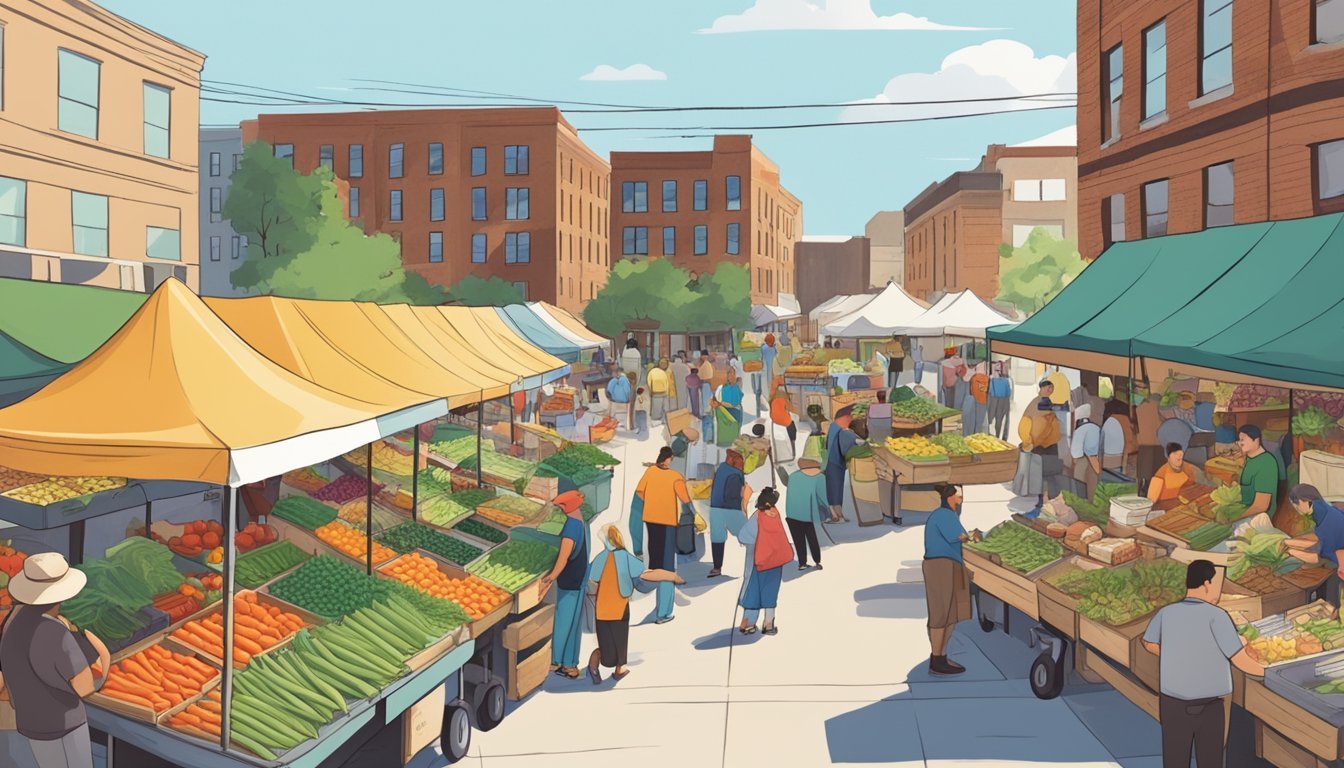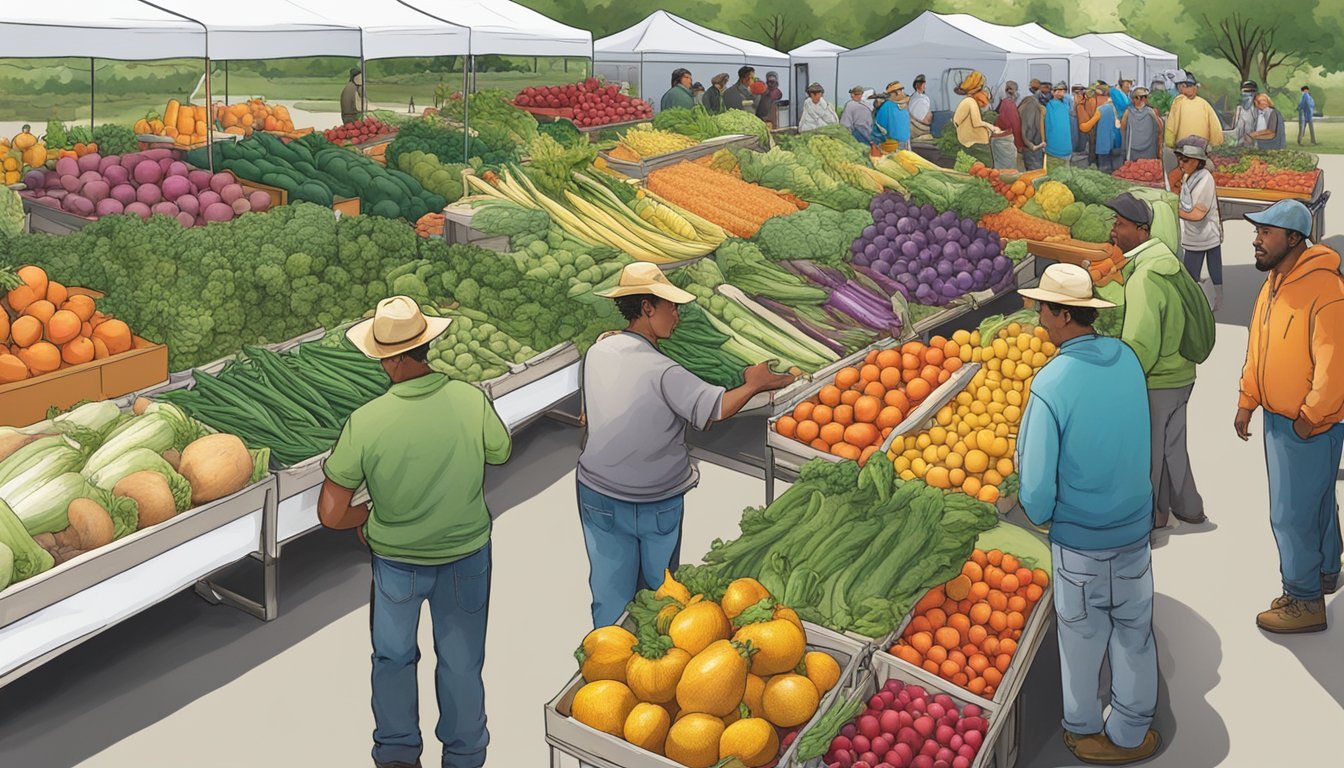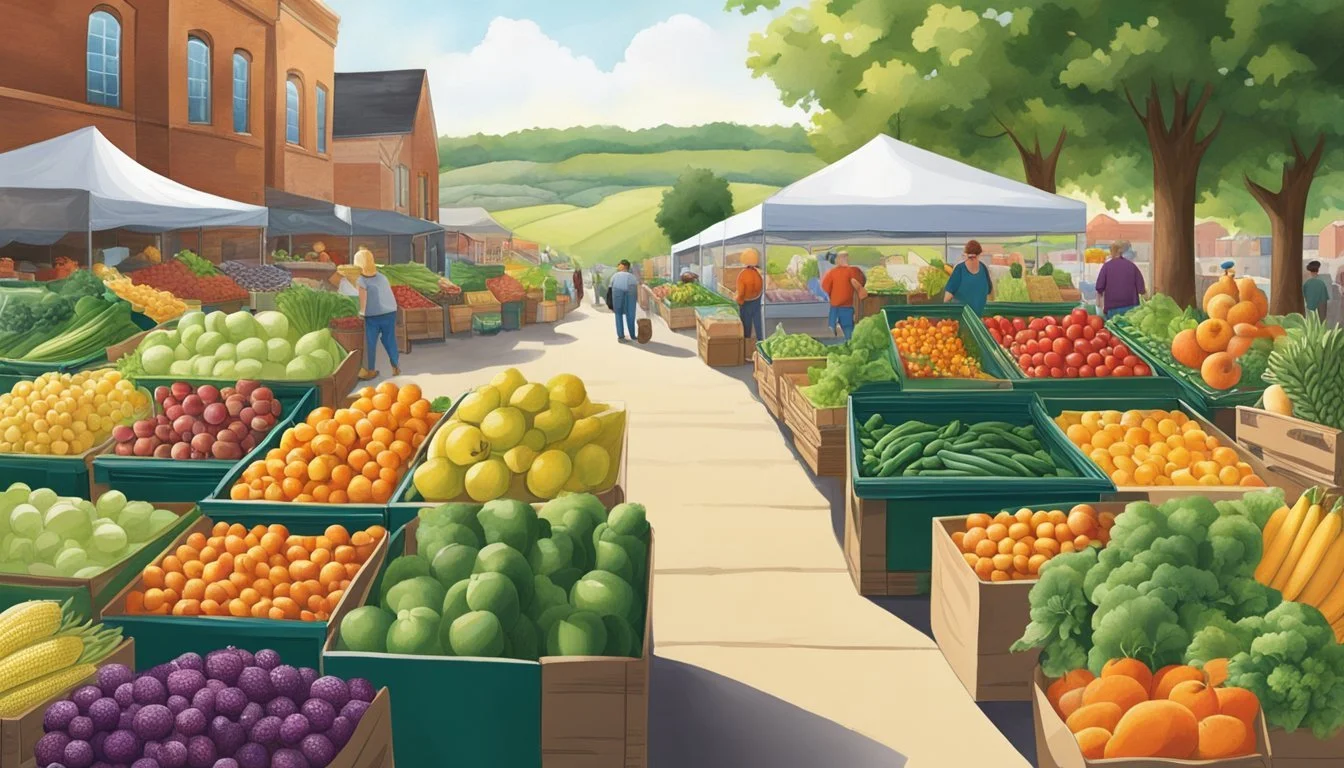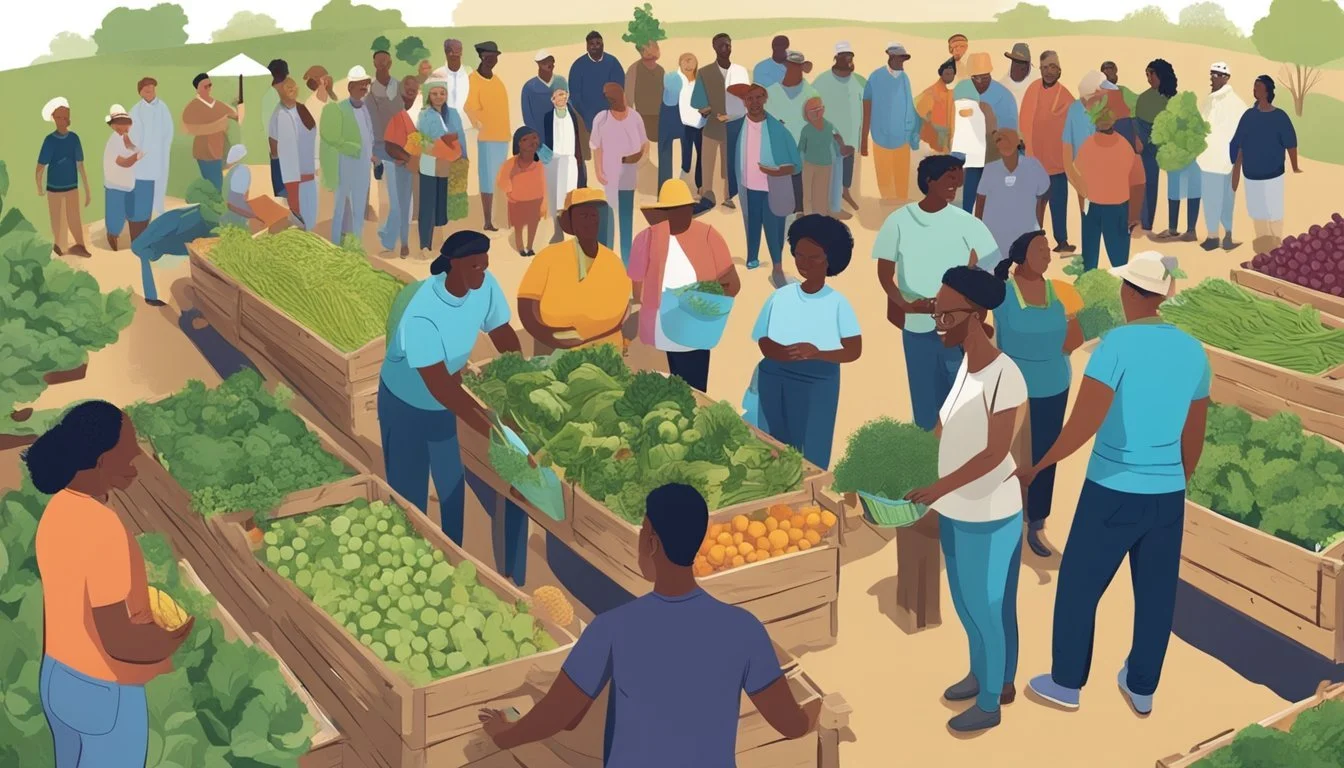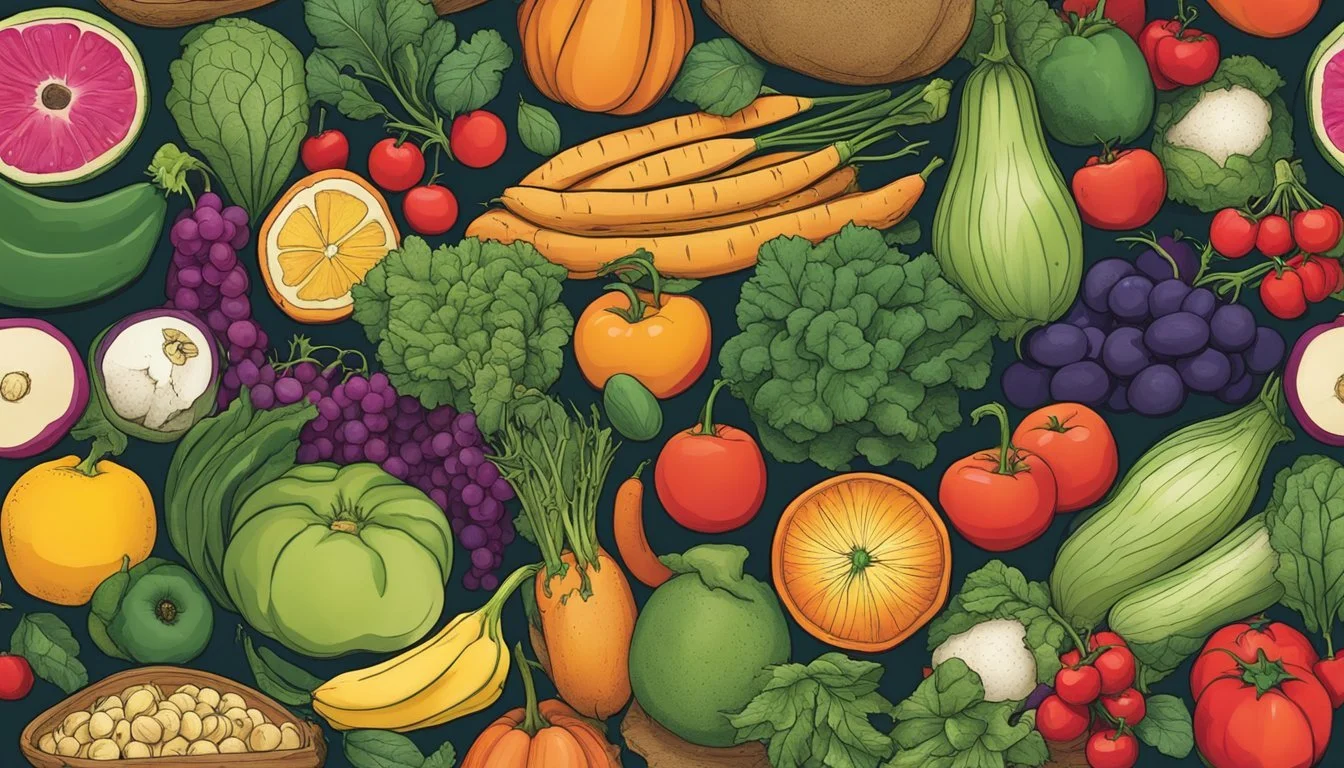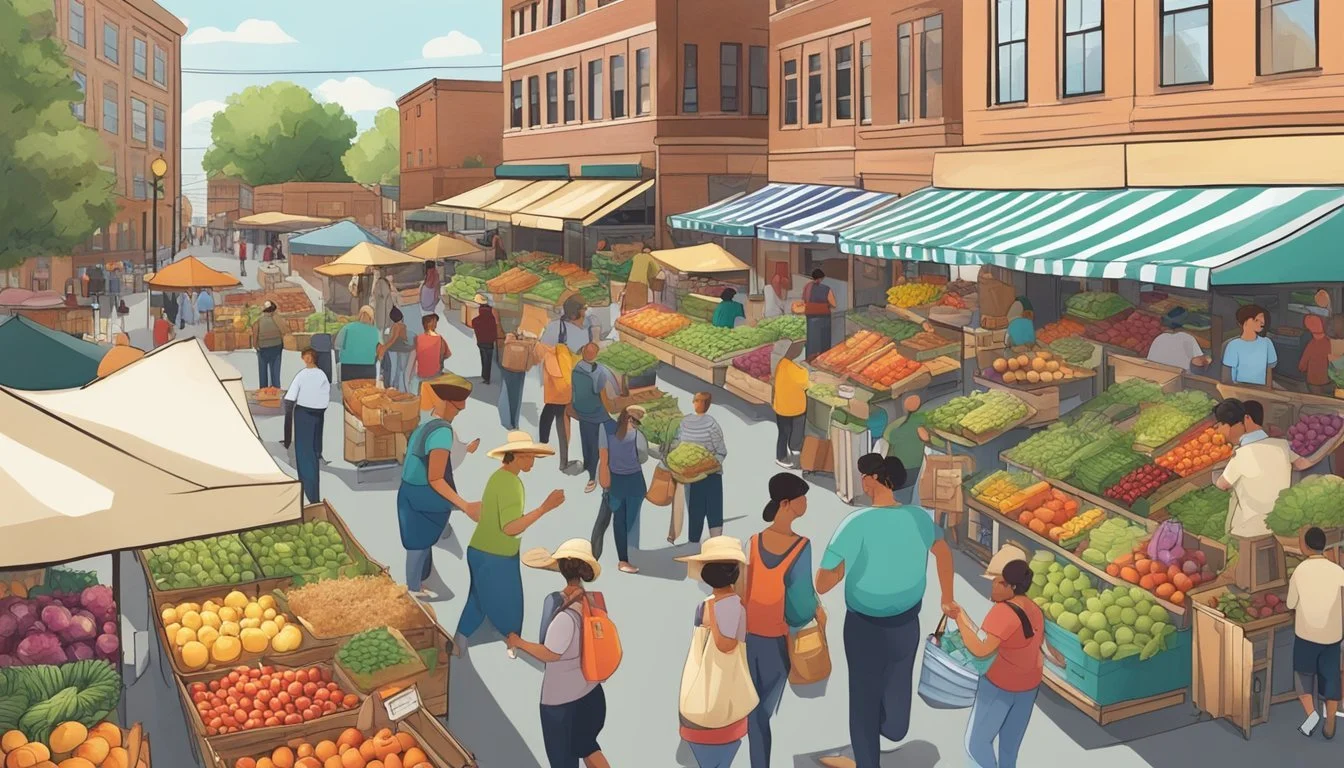Community Supported Agriculture in Omaha, NE
Thriving Local Food Movement
Community Supported Agriculture, commonly known as CSA, has taken root in Omaha, Nebraska, aligning local consumers with the rhythms of regional farming. At its core, CSA is a mutually beneficial partnership where individuals and families subscribe to receive seasonal produce directly from local farms. This model not only supports farmers by providing them with upfront capital but also allows consumers to partake in the local bounty and eat fresh, organically grown fruits and vegetables.
Omaha residents have embraced this sustainable approach to buying groceries, wherein they become shareholders of a farm's harvest. The CSA model in Omaha is marked by a diverse array of options, from Rolling Acres Farm's forty years of organic practices to Wenninghoff's fresh-picked produce subscriptions and Big Muddy's educational emphasis alongside their produce offerings. These CSAs pride themselves on connecting the community to the source of their food, promoting transparency in the food chain.
Such direct farm-to-table systems ensure that Omaha's community has access to the freshest produce while simultaneously sustaining the local agricultural economy. Farms like Rolling Acres offer CSA shares that are distributed throughout the city and surrounding areas, whereas others like Aiki Farm may provide door-to-door delivery services. Each farm fosters a unique relationship with its members, yet all share a common goal of nurturing community engagement with local food systems.
Understanding CSA
Community Supported Agriculture (CSA) represents a partnership between local producers and consumers, where the risks and rewards of farming are shared. Members purchase shares of a farm's harvest in advance, securing a season's worth of fresh produce while supporting local agriculture.
History of CSA
The CSA model emerged in the 1960s in Germany, Switzerland, and Japan as a response to concerns about food safety and the urbanization of agricultural land. It arrived in the United States in the 1980s and has since gained popularity as a sustainable alternative to the mainstream food system. In Omaha, Nebraska, CSAs have strengthened the link between farmers and the urban community, allowing residents to participate directly in local agriculture.
CSA Model Explained
Under the CSA model, consumers become members by buying shares of a farm's upcoming harvest. These shares typically include a variety of vegetables and may also feature fruits, eggs, and other farm products. Shares are distributed on a recurring basis throughout the farming season. For instance:
Share Types:
Standard Share: A mix of seasonal produce suitable for small families or individuals.
Large Share: A larger variety of produce, often enough for larger families or sharing.
Benefits of Joining CSA
Joining a CSA offers a multitude of benefits. Members enjoy fresh, seasonal produce often at a lower cost than what is available in supermarkets. They also contribute to the local economy and have the opportunity to form a relationship with the land and people who grow their food. Other benefits include:
Health: Access to nutrient-rich, fresh, and organic produce.
Community: Members often form a community around the farm, with opportunities for farm visits and events.
Environment: Local, small-scale farming tends to use fewer pesticides and is more sustainable.
CSA Operations in Omaha
Community Supported Agriculture (CSA) in Omaha connects residents with fresh, locally-sourced produce directly from the farms that grow them. This relationship supports local agriculture and provides the community with healthier food options.
List of CSAs in Omaha
Wenninghoff's Farm
Shadow Brook Farm
Benson Bounty
Iowana Farm
Wenninghoff's Farm CSA Details
Wenninghoff's Farm, located in Omaha, NE, provides a CSA that includes 15 weeks of fresh-picked produce. Subscribers can expect a variety of seasonal vegetables along with occasional fruits, eggs, and jams. Their CSA program has multiple levels, including options for community-supported bakery with 4, 12, and 52-loaf commitments.
Shadow Brook Farm CSA Details
Shadow Brook Farm, nestled near the Loess Hills, offers a CSA with a robust selection of produce, engaging the Omaha community with weekly shares of farm-fresh goods. They emphasize organic farming practices and ensure that their produce is seasonal and of high quality.
Benson Bounty CSA Insights
Benson Bounty, an urban farm in Omaha, provides locally grown vegetables, herbs, and more through their CSA program. They focus on sustainability and chemical-free farming, giving priority to heirloom and non-GMO plant varieties. Consumers can enjoy seasonally available produce while supporting urban agricultural practices.
Iowana Farm CSA Information
Iowana Farm, situated in the Loess Hills and serving the Omaha area, cultivates a variety of organic crops. Their CSA program offers fresh vegetables known for their quality and flavor. By supporting Iowana Farm, members receive a regular share of produce while helping to preserve the unique agricultural heritage of the region.
What to Expect from Omaha CSA
Consumers looking to engage with Omaha Community Supported Agriculture (CSA) programs can anticipate a cycle of fresh, seasonal produce, adhering to organic and sustainable farming practices. They should also be aware of the inherent risk-reward nature of CSA participation.
Seasonal Produce Available
Spring: Expect an array of leafy greens like spinach and kale, as well as radishes and spring onions. Summer: Tomatoes, peppers, cucumbers, and sweet corn are typical. Fall: Root vegetables like beets and carrots emerge, coupled with winter squashes. Winter: While not as abundant, winter CSAs might offer produce like stored apples or greenhouse-grown herbs.
Organic and Sustainable Practices
Omaha's CSA farms, like Rolling Acres Farm and Old Tree Farm, prioritize organic practices, abstaining from synthetic fertilizers and pesticides. High tunnels and other eco-friendly techniques are employed to extend growing seasons and minimize environmental impact.
Risk and Reward
Risk: Participants share in the farm's fluctuations, understanding that crop yields can vary due to weather or pests. Reward: In return, they receive fresh produce, often at lower costs than organic options in conventional outlets, fostering local agriculture and community health.
Becoming a CSA Member
Joining a Community Supported Agriculture program in Omaha, NE offers access to fresh, locally grown produce, while supporting regional farmers and contributing to sustainable agricultural practices.
How to Join
An individual interested in becoming a CSA member can locate nearby farms such as Rolling Acres Farm or Wenninghoff’s, which offer CSA shares in Omaha and the Southwest Iowa region. Prospective members typically sign up through the farm's website, providing personal details and choosing a share type that fits their needs.
Membership Costs
Costs vary by farm and share size, but an example from Wenninghoff’s suggests that a 15-week supply of fresh-picked produce is standard. Membership fees reflect the length of the CSA season, with some farms offering payment plan options. Prices are set by each CSA provider, and member commitments can range from one season to an annual agreement.
Share Size Estimated Cost Duration Small $X - $Y 15 weeks Large $A - $B 15 weeks
Note: Exact prices are specific to individual farms and their offerings.
Pick-Up and Delivery Options
Members generally collect their shares at designated pick-up locations on the given schedule. For example, a pick-up point might be the Gifford Park Neighborhood Market or Big Muddy Urban Farm. Certain CSAs may offer delivery services for an additional fee, enhancing convenience for members unable to attend a regular pick-up.
Pick-Up Times:
Fridays: 5 - 8pm
Saturdays: 9 - 11am
CSA members play an essential role in the success of the agricultural community, offering a stable income to farmers and getting an array of seasonal produce in return. With various CSA programs available in Omaha, members can choose one that aligns with their budget, lifestyle, and commitment level, supporting local agriculture while enjoying a cornucopia of fresh foods.
Beyond Vegetables—Diversity in Produce
Omaha's Community Supported Agriculture programs offer more than just vegetables; they provide a cornucopia of fresh fruits, herbs, animal products, and even ornamental flowers and plants.
Fruits and Herbs
Within the CSA shares, members can expect a variety of fruits like apples, pears, and berries, thanks to farms utilizing both fields and high tunnels for extended seasons. Herbs, ranging from basil to thyme, are also commonly included, enhancing the culinary possibilities for CSA consumers.
Eggs, Meat, and Cheese
A number of CSAs expand their offerings beyond produce to include eggs from free-range chickens. Subscribers might also have the option to receive meat from grass-fed livestock and cheese, crafted from the milk of local cows or goats.
Flowers and Plants
In addition to edible goods, some CSAs offer the beauty of flowers and plants. These can range from seasonal bouquets to potted herbs and ornamentals, providing both aesthetic and practical benefits to members.
Supporting Local Agriculture
In Omaha, NE, engaging with Community Supported Agriculture (CSA) provides tangible benefits to the local economy and strengthens community bonds. By choosing CSA programs, individuals can directly support family-operated farms and have a positive influence on local food production.
Community Impact
Community Supported Agriculture (CSA) initiatives in Omaha play a critical role in supporting local farmers by providing them with a stable income source and a dedicated market for their produce. Members who subscribe to a CSA purchase shares of a farm's harvest in advance, allowing farmers to plan more efficiently and reduce waste. The direct relationship between producers and consumers fosters a closer understanding of where food comes from, and in Omaha, this connection underlies a more resilient local food system.
Key aspects of CSA's community impact:
Economic support: Farmers receive early season capital, which helps in planning and reduces financial risks.
Local engagement: Consumers and farmers often interact, leading to stronger community relationships and shared agricultural responsibility.
Advocacy and Education
Education plays a pivotal role in the growth and sustainability of CSAs in Omaha. By advocating for the benefits of locally sourced produce, CSAs become more than a food source—they're a learning opportunity. Organizations involved in CSA educate the public on sustainable agricultural practices and the importance of local farming in maintaining a diverse and secure food system.
Efforts in local advocacy and education include:
Workshops: Farms and CSAs organize events to teach about food production and the significance of supporting local agriculture.
Outreach: Through partnerships with local schools and community groups, CSAs raise awareness about the nutritional, environmental, and economic benefits of locally produced food.
By engaging with these educational resources, community members are empowered to make informed decisions that align with sustainable and local consumption, enhancing the health and vitality of Omaha's food ecosystem.
Frequently Asked Questions
What is a CSA?
Community Supported Agriculture (CSA) is a partnership model between farmers and community members in which individuals invest in the farm's operations at the start of the growing season. In return, they receive a share of the farm's harvest throughout the season.
How do CSA shares work?
Members typically purchase a share at the beginning of the growing season. Depending on the particular farm, one can choose between different sizes or types of shares to suit their needs. Shares may include a variety of produce and other farm products.
What is the typical season for a CSA in Omaha, NE?
Most CSAs in Omaha run for about 15 weeks, often starting in June and ending in September. Exact start and end dates can vary by farm.
Are all CSAs organic?
Not all CSAs in Omaha are certified organic. However, many pride themselves on using sustainable and environmentally friendly farming practices. It's essential to inquire with individual farms for their specific methodologies.
What are the payment options for CSA memberships?
Payment options differ depending on the CSA. Some require full payment upfront, while others offer installment plans. There may be a range of payment methods accepted, including cash, check, or credit card.
What types of produce can be expected from a CSA in Omaha, NE?
CSA members can anticipate receiving a variety of fresh-picked produce throughout the season. The selection will change as different crops come into season, and may include vegetables, herbs, and sometimes additional items like eggs, flowers, or homemade jams.

